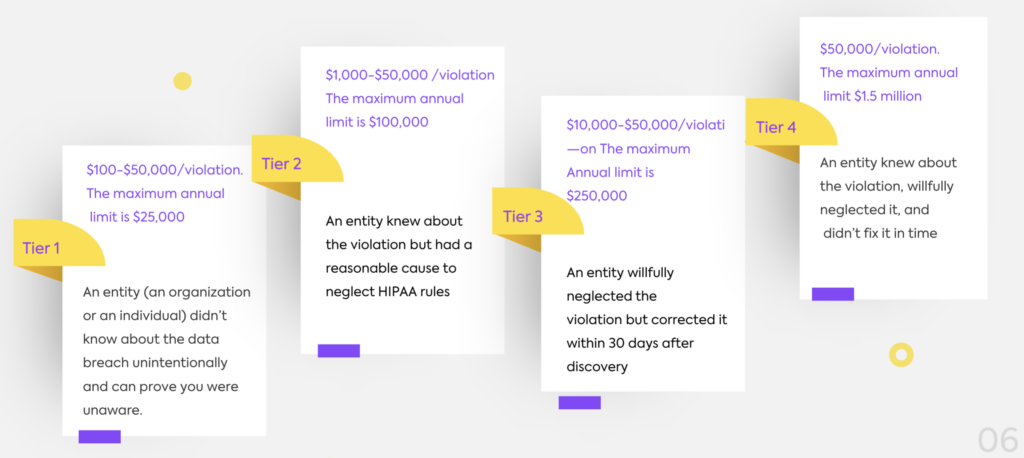The Health Insurance Portability and Accountability Act of 1996 (HIPAA) is a federal law that mandates national standards to protect sensitive patient health information. It prevents the unauthorized disclosure of this information and requires healthcare entities to safeguard patient privacy through a combination of administrative, physical, and technical controls. HIPAA is enforced by the U.S. Department of Health and Human Services (HHS), and compliance is essential to avoid hefty fines and ensure patient trust.

Ensures healthcare data, which is personal to every patient, remains protected against unauthorized access and disclosure.
Focuses on securing electronic protected health information (ePHI) both at rest and in transit. This rule mandates confidentiality, integrity, and availability safeguards.
Requires healthcare entities to notify affected individuals of any breaches of unsecured patient information within a 72-hour timeframe.
Protects patient data used for improving safety and healthcare outcomes, ensuring it remains secure.
Sets penalties for non-compliance and outlines procedures for investigations and hearings related to breaches that expose protected health information (PHI).
Failure to comply with HIPAA regulations can result in hefty fines and reputational damage. Digital Defense helps healthcare organizations avoid such penalties by ensuring full compliance with HIPAA standards.

Our HIPAA compliance consulting and assessment service includes system assessments, advisory services, and onsite evaluations to fortify your HIPAA compliance program and safeguard your organization from violations.
We assist healthcare organizations in implementing corrective actions to secure patient data. Our services include privacy protection, data security enhancements, training, advisory services, cloud security assessments, and risk analysis.

We create customized GDPR compliance roadmaps from scratch, ensuring that your organization is fully compliant.

We identify and discover PII across your organization, ensuring that it is protected according to HIPAA guidelines.

Offering flexible engagement models and competitive pricing to suit your needs.

A trusted advisor committed to your long-term HIPAA success.

HIPAA applies to "covered entities" like healthcare providers, health plans, and healthcare clearinghouses, as well as "business associates" that handle PHI on behalf of covered entities.
While HIPAA doesn’t mandate specific encryption algorithms, it does require covered entities to implement “addressable” safeguards to protect electronic PHI. This often includes encryption at rest and in transit.
Yes. HIPAA introduces the concept of Business Associates (BAs). You must have a signed Business Associate Agreement (BAA) with any vendor who accesses PHI on your behalf. This agreement outlines their obligations to protect patient data.
We offer a range of services, including risk assessments, security awareness training, and implementation of HIPAA-compliant security controls. We can also assist with developing and maintaining HIPAA policies and procedures.
HIPAA safeguards any data that links a patient to their medical condition. This includes names, addresses, Social Security numbers, diagnoses, and treatment details.